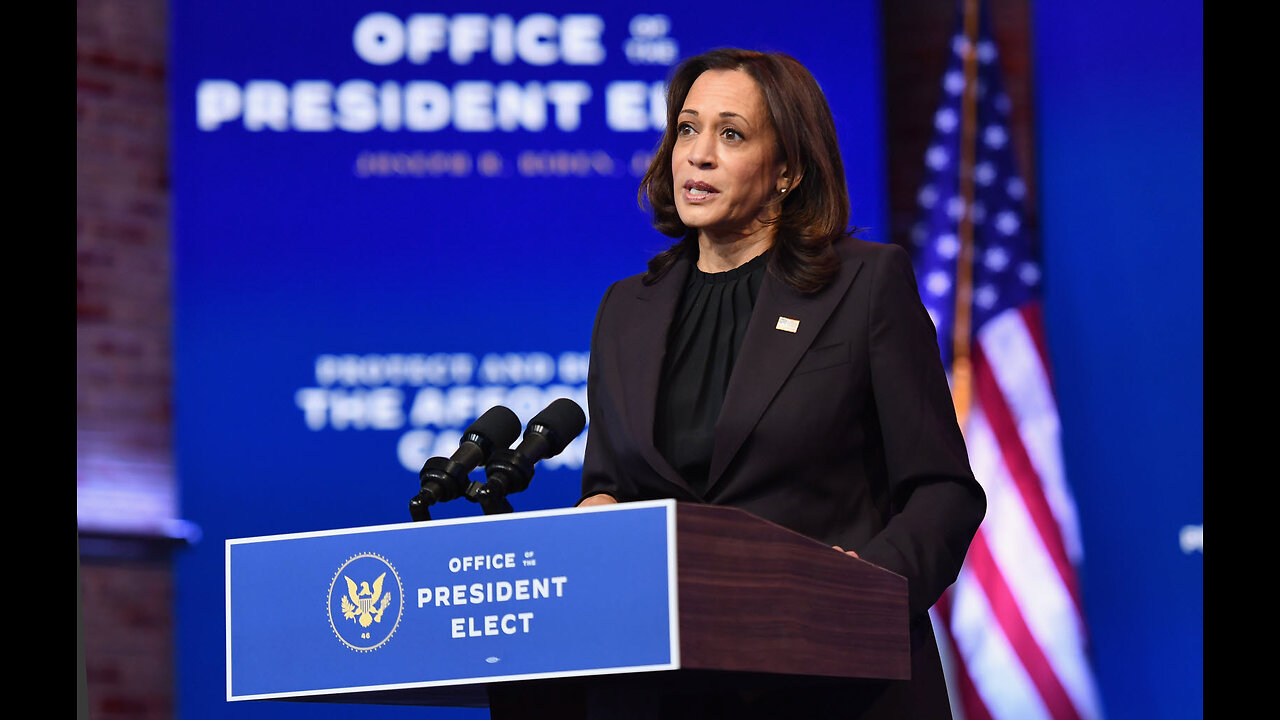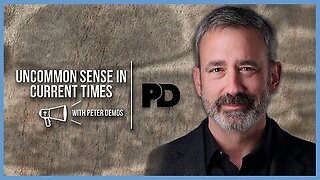Premium Only Content

Is Kamala Harris really the future of the Democratic Party?
The underwhelming vice presidency of an unpopular former prosecutor has created a succession problem for the Democrats.
When she announced that she was running for president in January 2019, Kamala Harris was met with glowing profiles, grassroots excitement, and ready donors.
Almost immediately, her campaign was plagued by inconsistent policy positions and internal disarray. Meanwhile, Harris was haunted by her tough-on-crime past as a California prosecutor.
Because of her own dismal polling numbers, Harris left the race eleven months later. But Biden picked her as his running mate anyway. And so she became the first female vice president, a black and Asian woman with a sleek image and a willingness to say things young progressives liked to hear.
She went on to bungle interviews, flip-flop repeatedly, and fail to own any issue or commit to anything. Which is to say, Harris’s vice presidency has looked a lot like her shambolic presidential campaign. Now she’s considered the Democratic front-runner in waiting—yet no one can quite explain why.
"Harris arrives somewhere with the plane and the motorcade and the Secret Service agents, makes a few mostly bland statements, then tells whomever she’s meeting with about how she’s going to bring their stories back to Washington. Then she’s quickly out of sight again,” wrote Edward-Isaac Dovere in The Atlantic in May 2021.
Two months prior, Biden had put Harris in charge of “leading the Administration’s diplomatic efforts to address the root causes of migration from El Salvador, Guatemala, and Honduras,” as the White House put it. It was a "stopping-the-seas-from-rising" kind of job, says Cato Institute immigration analyst David J. Bier, especially since Harris had no authority to actually change U.S. immigration policy.
Still, a vice president could at least play a robust rhetorical role here, shifting the conversation around the issue , or rallying Democrats behind an inspiring message. But rather than outline a coherent policy vision, Harris made a series of awkward decisions and comments that angered many Democrats and gave fodder to Republicans.
If Harris runs for president, she can’t point to her record as a prosecutor because it’s mostly become an embarrassment.
As San Francisco district attorney, she increased prosecutions and convictions for "misdemeanor quality-of-life crimes” and pushed for giving fewer people access to the city’s Drug Court, which offers alternatives to incarceration. She opposed a prostitution decriminalization measure, helped federal officials raid immigrant businesses, hid misconduct by a drug lab technician, and helped launch an anti-truancy initiative that would bring criminal charges against parents if their kids missed too much school. As California attorney general, she fought against a court ruling that the state’s death penalty was unconstitutional, fought to keep people in overcrowded prisons after a court ordered them released, defended the state corrections department’s denial of surgery for transgender inmates, and refused to back a measure requiring more scrutiny of police use-of-force cases.
She also fought to shut down the sex-worker friendly ad platform Backpage while publicly ignoring sexual misconduct involving Oakland police and an underage girl. 1,974 people were sent to state prisons for marijuana or hashish possession while Harris was California’s top cop.
Part of a politician's job is finding a way to work together with those in their coalition. Harris, meanwhile, has struggled to work comfortably with even her own staff, many of whom have departed after brief stints on the job. A June report in Politico described Harris' office as "tense and at times dour," marked by chaotic moments, low morale, and low trust. One person "with direct knowledge of how Harris’ office is run" described it as an unhealthy and "abusive" environment where “people are thrown under the bus from the very top."
“Should Biden Run Again? The Question Is Dividing Democrats” read a September 2022 headline in Time, about the oldest president in U.S. history. But if not Biden, then who? A LATimes analysis of national opinion polls said that as of October 2022, 53% find Harris unfavorable, a drop of 14% since she took office.
It’s hard to avoid the sense that the Democrats have been so enamored with the package this particular candidate comes in that they're willing to overlook what lies beneath the surface. Harris’ problems are her own. But in making her an avatar of its future, the party has made her problems their own too, embracing box-checking at the expense of political or administrative competence. Some say "third time's a charm," but a more relevant adage may be “fool me once, shame on you; fool me twice, shame on me.” Eventually, Joe Biden will leave politics. When that happens, will Harris fool progressives a third time?
-
 1:08:20
1:08:20
Man in America
12 hours ago🇨🇳 RedNote: A CCP Trojan Horse Deceiving Americans? w/ Levi Browde
31.5K32 -
 3:55:11
3:55:11
I_Came_With_Fire_Podcast
15 hours agoTrump SABOTAGE, LA FIRE CHIEF SUED, and BIDEN’S LAST F-U!
18.9K7 -
 2:59:47
2:59:47
Joker Effect
6 hours agoUkraine in a video game? Hardest thing I have done. S.T.A.L.K.E.R.2 Heart of Chornobyl,
69.9K4 -
 1:15:22
1:15:22
Flyover Conservatives
1 day agoEczema, Brain Fog, B.O., and Gas… Eating Steak and Butter Creates Ultimate Health Hack - Bella, Steak and Butter Gal | FOC Show
54.7K3 -
 51:58
51:58
PMG
10 hours ago $2.41 earned"Can the Government Learn from Elon Musk’s 70% Labor Cut? A Deep Dive into Inefficient Agencies"
38.1K1 -
 6:39:15
6:39:15
Amish Zaku
9 hours agoRumble Spartans #10 - New Year New Maps
33.6K2 -
 1:04:58
1:04:58
In The Litter Box w/ Jewels & Catturd
1 day agoNo Tax On Tips! | In the Litter Box w/ Jewels & Catturd – Ep. 722 – 1/17/2025
152K32 -
 5:35:39
5:35:39
Dr Disrespect
16 hours ago🔴LIVE - DR DISRESPECT - WARZONE - CRAZY CHALLENGES
173K34 -
 1:16:30
1:16:30
Edge of Wonder
12 hours agoLA Fire Updates: Miracles Amidst the Devastation
46.8K14 -
 54:54
54:54
LFA TV
16 hours agoBanning Mystery of the Ages | TRUMPET DAILY 1.17.25 7pm
39.9K8